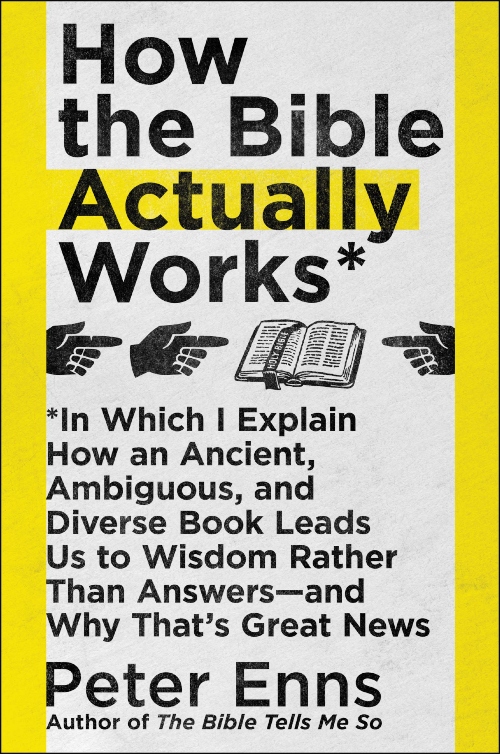How the Bible Actually Works by Peter Enns
While this book asks good questions about the Bible, the answers fail to satisfy
 How the Bible Actually Works
How the Bible Actually Works
By Peter Enns
Hodder
ISBN 978 1 529 34285 7
Reviewed by Pieter Lalleman
Professor Enns is one of those biblical scholars who began as a conservative evangelical but has gradually moved to a rather liberal position. And he is on a mission to bring his newly found insights across in popular books. To my taste the present book is too popular and flippant in tone: the words I and me are in oversupply and the tone can be quite dismissive; but others may like this style. After some one hundred pages Enns calms down for a while.
In any case, Enns’ specialism is the Old Testament (OT) and where he writes ‘Bible’ he often means the first part of the Christian Scriptures. He sets out to show that this book is ancient (in the pejorative sense of the word), ambiguous and diverse (in the sense of self-contradictory). He dates nearly the entire OT in or after the Babylonian exile, which is later than many scholars would prefer. He argues that the aim of the Bible is not to provide information but to teach us wisdom. (For me this is not a matter of either/or.) Earlier parts of the Bible were constantly reinterpreted in later parts, resulting in major contradictions at the factual level. The key to reading the Bible well is wisdom. As in so many books, the apostle Paul comes in for harsh criticism.
Despite the light tone, this book supposes more background knowledge than many church members will have. It contains important observations and asks good questions, which certainly made me think more than similar books. In the end, however, Enns’ answers fail to satisfy. Rather than seeing the Bible as a human response to God, I would describe it as a record of God’s continuous and progressive revelation. And it is this idea of progressive revelation which is sadly absent from Enns’ perspective.
Reading the Bible as a record of God’s trajectory through history does not eliminate all problems, but it suggests that in the Bible we hear God addressing us rather than (merely) humans responding to changed circumstances. Enns’ book did not help me to hear God speak.
The Revd Dr Pieter J. Lalleman is the pastor of Knaphill Baptist Church, Surrey
Baptist Times, 26/07/2021